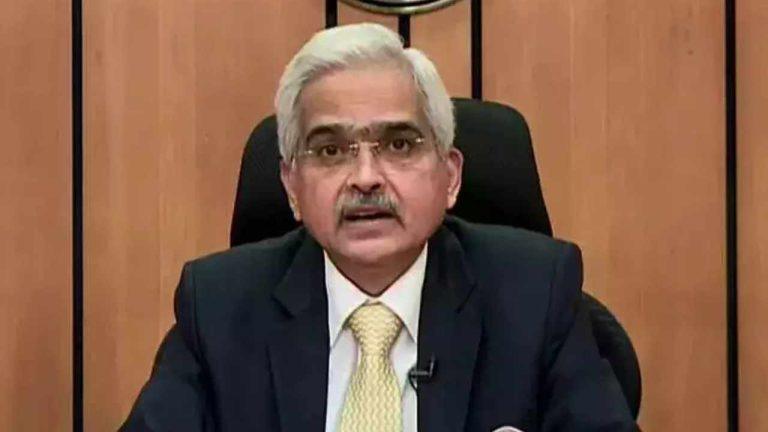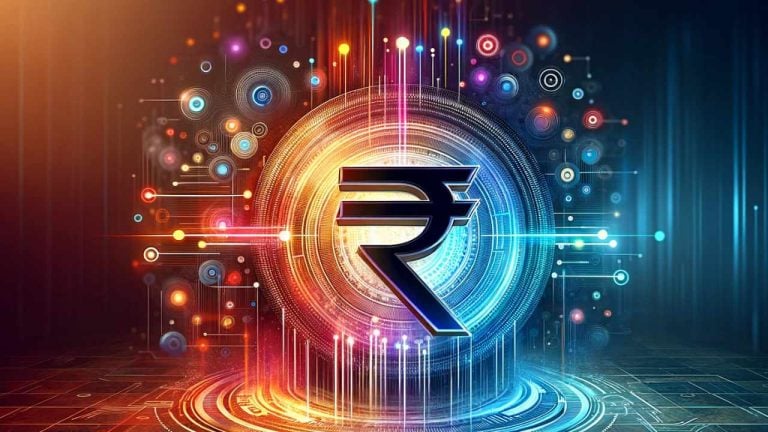 Central banks globally continued to bolster their gold reserves in July, despite an increase in gold prices, according to a report by Krishan Gopaul, senior analyst, EMEA at the World Gold Council. The report highlights a 206% increase in net gold purchases compared to the previous month, driven by several key players in the global […]
Central banks globally continued to bolster their gold reserves in July, despite an increase in gold prices, according to a report by Krishan Gopaul, senior analyst, EMEA at the World Gold Council. The report highlights a 206% increase in net gold purchases compared to the previous month, driven by several key players in the global […] The governor of India’s central bank, the Reserve Bank of India (RBI), Shaktikanta Das, has highlighted the challenges of implementing cross-border digital currency interoperability and the necessity for robust governance. He emphasized the importance of gradual central bank digital currency (CBDC) rollout and data-driven insights from pilot programs. RBI Governor Warns of Challenges in Digital […]
The governor of India’s central bank, the Reserve Bank of India (RBI), Shaktikanta Das, has highlighted the challenges of implementing cross-border digital currency interoperability and the necessity for robust governance. He emphasized the importance of gradual central bank digital currency (CBDC) rollout and data-driven insights from pilot programs. RBI Governor Warns of Challenges in Digital […] The Indian government, through a panel headed by the Secretary of the Department of Economic Affairs (DEA), is expected to release a consultation paper on cryptocurrency regulations. The paper, scheduled for release between September and October 2024, will seek input from stakeholders to gather feedback on effective regulation. India is emphasizing the importance of international […]
The Indian government, through a panel headed by the Secretary of the Department of Economic Affairs (DEA), is expected to release a consultation paper on cryptocurrency regulations. The paper, scheduled for release between September and October 2024, will seek input from stakeholders to gather feedback on effective regulation. India is emphasizing the importance of international […]

While Indian AML agencies have given Binance the green light to resume operations, authorities are still seeking $86 million in tax liabilities from the firm.
Binance recently announced its return to India on the occasion of the country’s 78th independence day — marking a fresh start to crypto adoption in one of the world’s fastest-growing digital economies.
However, the exchange still faces an $86 million tax demand from Indian authorities under the Goods and Services Tax.
Binance’s return to India is the culmination of a complex regulatory process. In December 2023, the Indian Ministry of Finance’s Financial Intelligence Unit (FIU) issued notices to several offshore crypto exchanges, including Binance, KuCoin, Bittrex, Gate.io and OKX, among others, for operating illegally in India.
 According to local media reports, the Reserve Bank of India has repatriated 100 tonnes of gold that was held in the vaults of the Bank of England. The operation, carried out in special circumstances due to the quantity of gold moved, may be repeated as India seeks to hold more gold domestically for logistical reasons […]
According to local media reports, the Reserve Bank of India has repatriated 100 tonnes of gold that was held in the vaults of the Bank of England. The operation, carried out in special circumstances due to the quantity of gold moved, may be repeated as India seeks to hold more gold domestically for logistical reasons […] India’s central bank, the Reserve Bank of India (RBI), is in the process of making its central bank digital currency (CBDC) available without relying on internet access. RBI Governor Shaktikanta Das has emphasized the importance of ensuring the digital rupee’s ease of use. RBI Governor Updates Digital Rupee Progress During an event hosted by the […]
India’s central bank, the Reserve Bank of India (RBI), is in the process of making its central bank digital currency (CBDC) available without relying on internet access. RBI Governor Shaktikanta Das has emphasized the importance of ensuring the digital rupee’s ease of use. RBI Governor Updates Digital Rupee Progress During an event hosted by the […]
Indian crypto platforms could attain similar status as authorized dealers (similar to banks) under the guidelines of the Indian Central Bank RBI.
India is working on a crypto regulatory framework based on the joint recommendations of the International Monetary Fund (IMF) and the Financial Stability Board (FSB) that could result in legal legislation in the next 5-6 months. Siddharth Sogani, the CEO of CREBACO that has worked with government agencies and ministries, told Cointelegraph that the Indian government is working on a five-point crypto legislature with a global approach.
India recently concluded the G20 summit on a high with several key economic announcements, however, the most notable decision for the crypto community came in the form of IMF-FSB joint recommendations for crypto regulations that India and other G20 nations welcomed.
The IMF-FSB crypto recommendations call for regulating the crypto market rather than a blanket ban approach. The IMF-FSB recommendations are a set of regulatory guidelines/suggestions that the G20 countries can work on to formulate their independent yet collaborative crypto legislative.
Cointelegraph reached out to CREBACO, a blockchain analytic firm that offered consulting services to several G20 committees and nations to get insight into India's crypto approach. Sogani, the CEO of the firm told Cointelegraph that based on their meetings with the government officials, India is currently working on a five-point regulatory approach with a focus on global collaboration on certain aspects such as crypto taxation.
Talking about the five-point framework, Sogani noted that the government is focusing on:
Sogani noted that the world has realized that banning crypto is futile and several nations are moving towards a regulatory approach rather than a blanket ban. The likes of the United States and Europe have already got some specific crypto regulations in place while India took the taxation route. He added:
“Regulations are inevitable, this ecosystem has grown substantially strong without regulations. Just imagine how well would it grow with proper regulations in place. Also, regulated markets reduce the risks of scams and illicit activities.”
India has called for a global approach to crypto regulations for a while, with Prime Minister Narendra Modi reiterating the same during the recently concluded G20 summit. One of the executives at the Finance Ministry confirmed that they have taken the IMF-FSB crypto recommendations and will focus on formulating regulations around it in the coming months.
Related: India G20 confirms ‘active discussions’ around global crypto framework
The Finance Ministry executive said that IMF-FSB recommendations offer a good “framework to decide our own way forward. The foundation is ready, beyond that how much we want to go it is for us to decide in the coming months and then take a call."
The official also cleared that banning cryptocurrencies is no longer an option and noted that “If you want to ban it (cryptocurrency), go ahead and ban it. But if the rest of the countries are not banning it, it will be extremely difficult for one country to ban it.”
India currently doesn’t have any specific crypto regulations in place, though the country imposed a 30% tax on crypto gains in 2022. However, the joint crypto recommendations and the Finance Ministry’s assurance that a crypto framework could materialize into a formidable legislation in the coming few months is an optimistic sign for the crypto industry in the country.
Magazine: Crypto City guide to Sydney: More than just a ‘token’ bridge

Singapore, Malaysia, the UAE, France, Benelux countries, Nepal and the U.K. have adopted the NPCI’s UPI payments system to varying degrees.
The National Payments Corporation Of India (NPCI) — an initiative led by the Reserve Bank of India (RBI) and 247 Indian banking companies — is on the lookout for a seasoned blockchain technologist to head and investigate opportunities for blockchain in current-day payment systems.
NPCI owns and operates the Unified Payments Interface (UPI), India’s home-grown instant payment system that facilitates interbank peer-to-peer and person-to-merchant transactions. A recent LinkedIn job posting confirmed NPCI’s ongoing drive to hire a head of blockchain.

The ideal candidate will be a seasoned technologist with at least six years of experience in developing and implementing blockchain, who will be primarily tasked with identifying “avenues wherever blockchain-driven solutions can be used.”
The senior leadership position also demands an in-depth technical understanding of multiple blockchain platforms and previous experience working on at least two pilot blockchain projects. UPI’s success in fortifying the Indian payments landscape has garnered interest from other jurisdictions.
Singapore, Malaysia, the United Arab Emirates, France, Benelux countries, Nepal and the United Kingdom have adopted the UPI payments system to varying degrees. Infusing blockchain elements in the UPI can potentially expose the technology to millions of users in an instant, thus reaffirming the capability of the underlying tech that has continued to power Bitcoin (BTC) for nearly 14 years.
The NPCI job application had over 200 applicants at the time of writing. NPCI’s blockchain hiring drive is expected to increase in the near future once viable blockchain use cases are unearthed.
Related: Amid crypto winter, central banks rethink in-house digital currencies
In August, the United Kingdom’s National Crime Agency (NCA) set out to hire four senior investigators for its Complex Financial Crime Team to work on crypto-related crimes.

The investigators will be tasked with pursuing high-end crypto fraud, money laundering and other blockchain-based crimes carried out by organized crime groups.
The U.K. has been working to establish an investigative team focusing on illicit crypto activities. On Jan. 4, the NCA launched its digital assets team, signaling an increased focus on crypto assets.
Collect this article as an NFT to preserve this moment in history and show your support for independent journalism in the crypto space.
Magazine: How to protect your crypto in a volatile market: Bitcoin OGs and experts weigh in

Yes Bank’s app UPI integration is the first for the Indian retail CBDC, which has seen a variety of projects since its pilot launch since December.
The Reserve Bank of India (RBI) central bank digital currency (CBDC), the digital rupee, will have enhanced usability, Yes Bank announced Aug. 30. This was thanks to Yes Bank’s integration of the Unified Payments Interface (UPI) with the RBI digital rupee app. Now Yes Bank account holders will be able to make transactions with the digital rupee by scanning UPI QR codes.
The UPI is a national payment portal operated by the National Payments Corporation of India (NPCI), a division of the RBI. The NPCI provides the infrastructure for both the UPI and the digital rupee. The UPI is used by 150 million merchants in India, according to local press reports.
We are pleased to share that YES BANK has gone live with Unified Payments Interface (UPI) interoperability on the Reserve Bank of India (RBI) Central Bank Digital Currency (CBDC) app.
— YES BANK (@YESBANK) August 30, 2023
With this, users can simply scan any UPI enabled QR Code through the YES BANK Digital Rupee… pic.twitter.com/dXxrerptoC
The Yes Bank app marks the first integration of the UPI with the CBDC. Yes Bank executive Ajay Rajan said in a statement:
“The transition to an interoperable CBDC platform holds the promise of seamless, efficient, and broader transactional capabilities for YES BANK customers. […] This transformational enabler will facilitate a quantum leap in CBDC usage, driven by the enhanced convenience and accessibility.”
Yes Bank was one of the eight original participating banks in the retail digital rupee pilot project, which launched in December. The project enlisted 5,000 participating merchants and 50,000 CBDC users and had carried out 800,000 transactions worth $134 million by February. A separate wholesale digital rupee pilot was launched in November.
Related: JPMorgan uses blockchain for 24/7 dollar transfers with Indian banks
The digital rupee is already accepted at some of the stores in the country's large Reliance Retail chain through a program using QR codes that began in February in conjunction with ICICI Bank, Kotak Mahindra Bank and Innoviti Technologies.
Magazine: Thailand’s national airdrop, Delio users screwed, Vietnam top crypto country: Asia Express

Feature is envisaged in the project of national web browser, cherished by the Ministry of Electronics & Information Technology.
The citizens of India might get an option to sign documents digitally through crypto tokens. Such feature is envisaged in the project of national web browser, cherished by the Ministry of Electronics & Information Technology (MeitY).
On August 9 MeitY announced the launch of Indian web browser Development Challenge. The Ministry hopes to “inspire and empower” developers from all corners of the country to create an indigenous web browser withan inbuilt CCA India root certificate. According to the release:
“Proposed browser would also focus on accessibility and user friendliness, ensuring built-in support for individuals with diverse abilities.”
Emphasized separately is the ability to digitally sign documents using a crypto token, which would be embedded into the browser.
The competition will last three rounds — after the first one the scope of participants would be limited to 18, after the second one to 8. The winner would be granted around 34 million Indian rupees ($411,000).
Related: Indian Supreme Court raps Union government on crypto rules delay. Report
Indian government has been active in its regulatory efforts in the recent months, especially in regard to tech and crypto. Presiding at the intergovernmental forum of 20 largest world economies (G-20), it has supported the Financial Stability Board’s (FSB) recommendations for a global crypto framework and called for special attention to developing economies’ specifics in its potential guidelines for crypto.
In August, The lower house of India’s parliament voted in approval of a bill that would ease data compliance regulations for Big Tech companies. The Digital Personal Data Protection Bill 2023 would simplify storage, processing and transfer standards for r global tech giants like Google, Meta and Microsoft, as well as for local firms.
Magazine: ‘Elegant and ass-backward’. Jameson Lopp’s first impression of Bitcoin